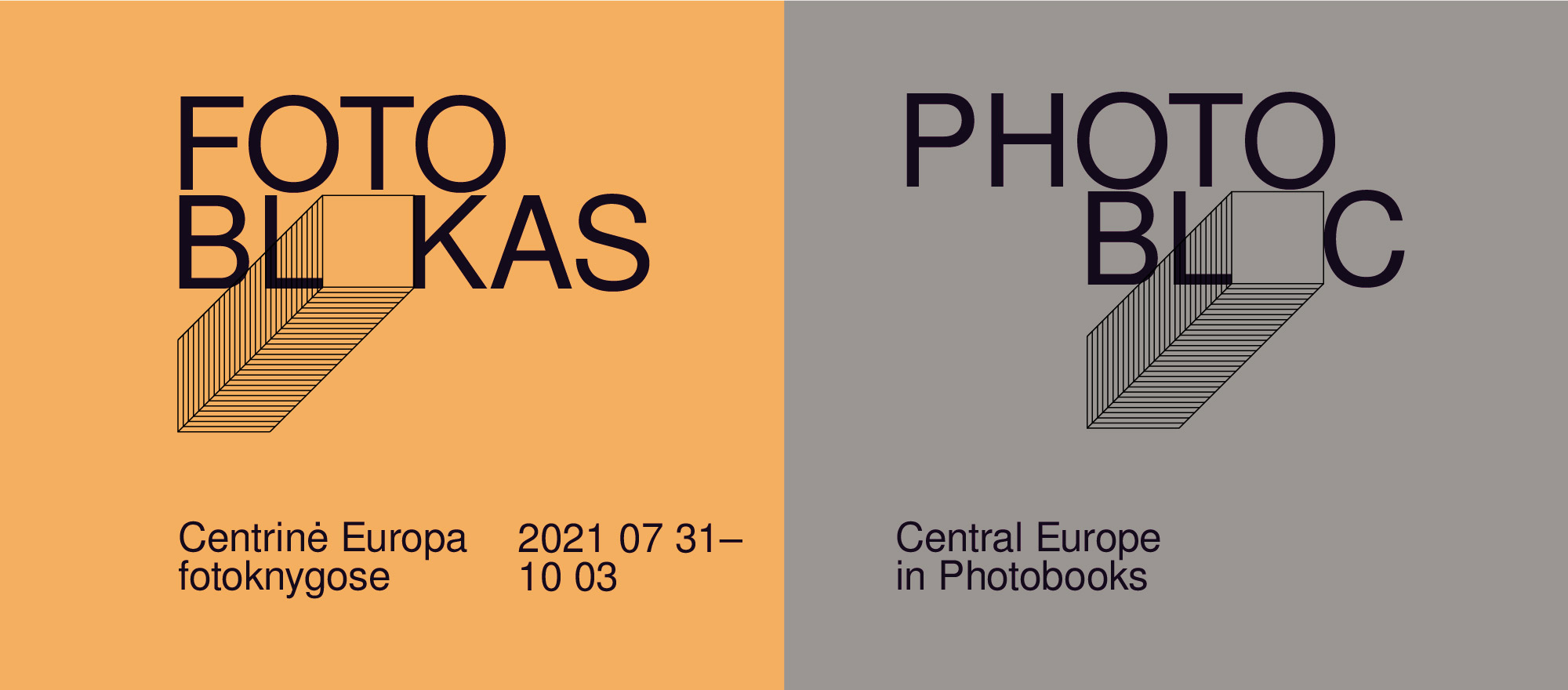Photobloc. Central Europe in Photobooks
31 July – 3 October 2021
 By the end of the 19th century a new genre of printed book emerged. Narrative function was transferred from the text to the photograph. Throughout the 20th century, albums, brochures, and photobooks kept track of the tumultuous history of our region. For the last two decades photobooks have attracted academic attention and have by now been often discussed by numerous publications and exhibitions. They have been featured at several shows, represented primarily by German or Russian publications; however, there have been no attempts as yet to look at this issue in the context of our region. In order to be able to think in terms of such a broad panorama it was necessary to collect and analyse Central European photobooks within the frameworks of one international research project, which culminated in this exhibition.
By the end of the 19th century a new genre of printed book emerged. Narrative function was transferred from the text to the photograph. Throughout the 20th century, albums, brochures, and photobooks kept track of the tumultuous history of our region. For the last two decades photobooks have attracted academic attention and have by now been often discussed by numerous publications and exhibitions. They have been featured at several shows, represented primarily by German or Russian publications; however, there have been no attempts as yet to look at this issue in the context of our region. In order to be able to think in terms of such a broad panorama it was necessary to collect and analyse Central European photobooks within the frameworks of one international research project, which culminated in this exhibition.
Photobloc is the first comprehensive and critically aware exhibition addressing the tumultuous history of Central Europe as illustrated by albums, artist books and propaganda publications. A broad international perspective paints a picture of shared fate of inhabitants of this part of the continent. More than a hundred books from Poland, Lithuania, Latvia, Estonia, Czech Republic, Slovakia, Hungary and Romania illustrate how photography reflected the processes of formulation of new identity of societies and young states of Central Europe, shaping their image, ideology, dreams of modernization and the future.
Photobooks offer an intriguing and still partly undiscovered field for all those interested in graphic arts, photography, politics, and art. The genre offers works ranging from albums of artistic photography by authors such as the Czech master František Drtikol, a renowned Polish photographer Edward Hartwig, a Romanian Hedy Löffler, to poignant collections of documentary photography. Together, they form a cohesive, cognitively inspiring story of the past and present of Central Europe.
The narrative of the exhibition is divided into six thematic chapters. It takes the viewer through the 20th century from the moment when the first mass printed photobooks were issued, through the period of revived and newly formed states, the trauma of another world war and wide-scale modernization that intersected with reproduced propaganda images of mass suffering and death. The display also featured publications documenting everyday life, social processes and attitudes in the 1960s and ‘70s up to the present day, as well as the era of political, cultural, and technological transformation.
Curators: Lukasz Gorczyca, Adam Mazur, Natalia Żak
Coordinator: Ieva Mazūraitė-Novickienė
Architect: Povilas Vincentas Jankūnas
Graphic design: Laura Grigaliūnaitė
The exhibition was first presented at the International Culture Centre in Krakow 22 11 2019 – 01 03 2020
Exhibition lenders: Archiv B&M Chochola, Galeria Piekary (Poznań), Instytut Sztuki PAN w Warszawie, Latvijas Nacionâlâ bibliotçka (Riga), Lietuvos nacionalinė Martyno Mažvydo biblioteka (Vilnius), Lithuanian Photographers Association, Ludvig Museum (Budapest), Międzynarodowe Centrum Kultury (Kraków), Muzeum Narodowe we Wrocławiu, Slovenská národná galeria (Bratislava), Uniunea Arhitecților din România (Bucharest), Vladimír Birgus, Adriana Dumitran, Sabra Daici, Aneta Grzeszykowska, Łukasz Gorczyca, Danuta Hartwig-Saulewicz, Joanna Helander, Eve Kiiler, Claudia Küssel, Adam Mazur, Rafał Milach, Vlad Nancǎ, Peter Puklus, Valeriu Râpeanu, Ľubo Stacho, Sławomir Smolarek
Organizers: National Gallery of Art of the Lithuanian national museum of Art, International Culture Centre Krakow
Sponsors: Lithuanian Culture Council, Polish Institute Vilnius, Embassy of the Czech Republic, Embassy of Hungary
Co-financed by the Ministry of Culture, National Heritage and Sport of the Republic of Poland as part of the Multi-annual Programme NIEPODLEGŁA 2017–2022
For more information: www.ndg.lt
Current safety regulations require the visitors to wear face masks and maintaining social distance of at least 2 m. Please follow the instructions given by the museum personnel and the signage that is placed throughout the museum floor to help encourage proper social distancing. Don’t forget to cover your mouth and nose with a tissue or your elbow before coughing or sneezing. Exhibitions and permanent exhibits can be visited without the Green Pass.
22 Konstitucijos Ave, LT-08105, Vilnius, Lithuania
+370 5 212 2997,
info@ndg.lt
www.ndg.lt













